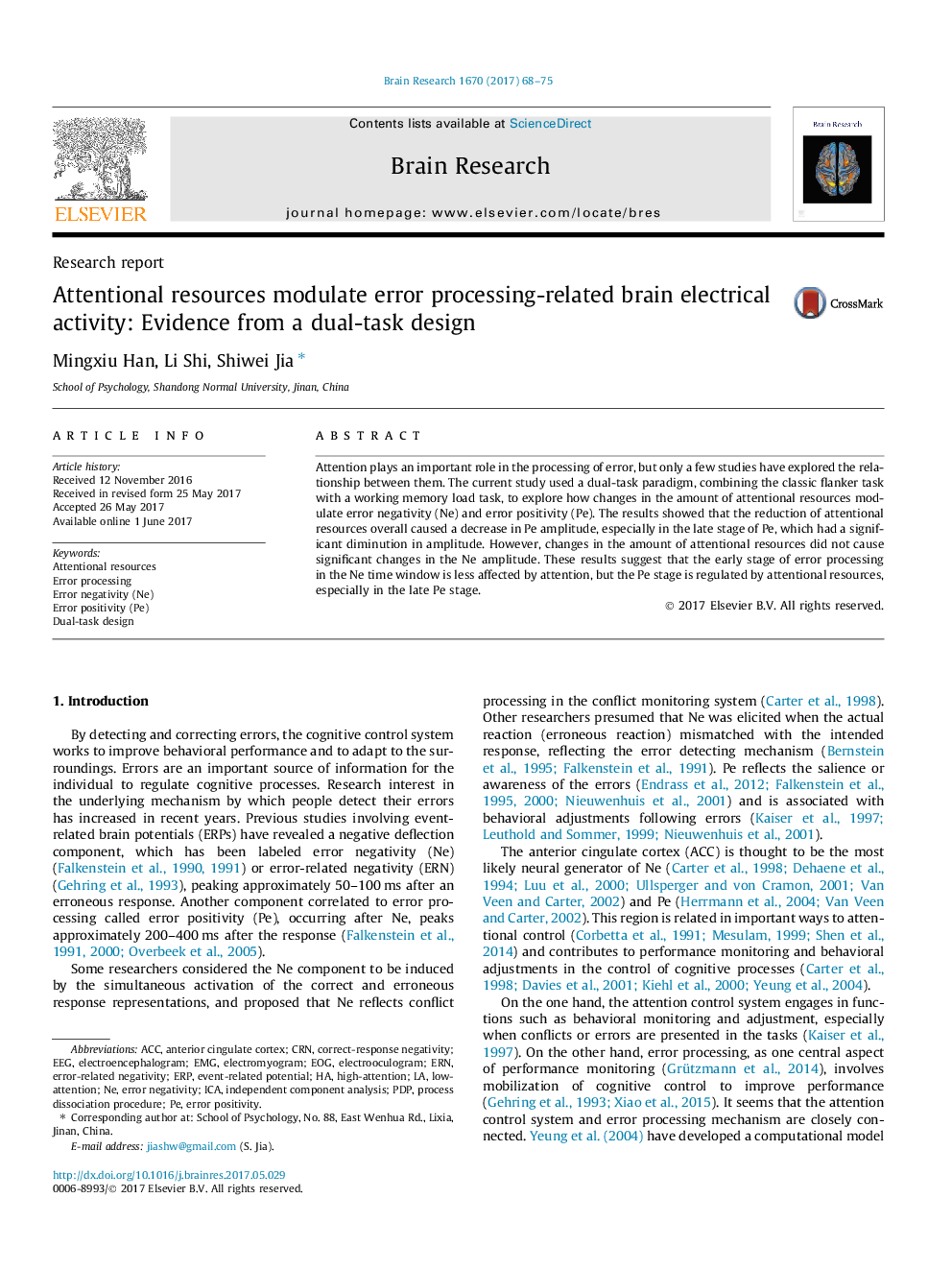| Article ID | Journal | Published Year | Pages | File Type |
|---|---|---|---|---|
| 5736690 | Brain Research | 2017 | 8 Pages |
â¢Ne and Pe were recorded and analyzed in high-attention and low-attention conditions.â¢Ne reflects a low level of error processing that is not affected by attention.â¢The Pe was regulated by attentional resources, especially in the late Pe stage.
Attention plays an important role in the processing of error, but only a few studies have explored the relationship between them. The current study used a dual-task paradigm, combining the classic flanker task with a working memory load task, to explore how changes in the amount of attentional resources modulate error negativity (Ne) and error positivity (Pe). The results showed that the reduction of attentional resources overall caused a decrease in Pe amplitude, especially in the late stage of Pe, which had a significant diminution in amplitude. However, changes in the amount of attentional resources did not cause significant changes in the Ne amplitude. These results suggest that the early stage of error processing in the Ne time window is less affected by attention, but the Pe stage is regulated by attentional resources, especially in the late Pe stage.
